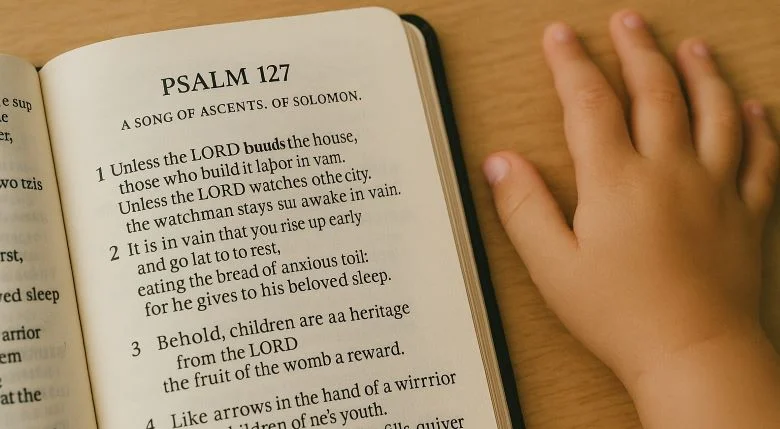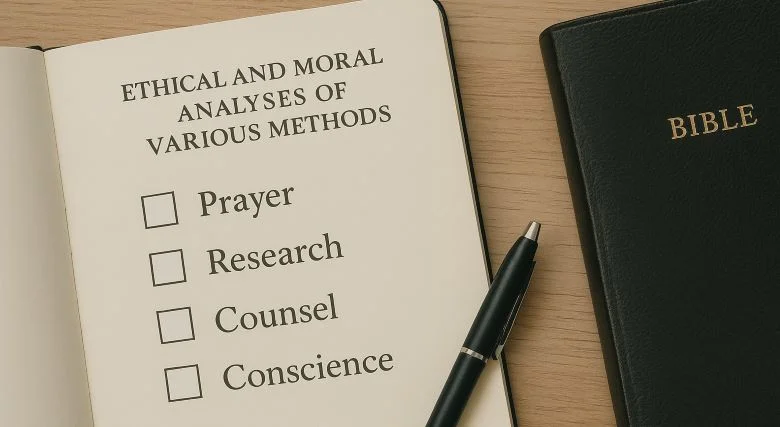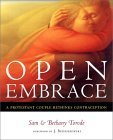
Have you ever wrestled with a question that didn’t seem to have a clear answer in the Bible?
For many Christians, birth control falls into that category. It’s deeply personal, often emotional, and it touches on our faith, our families, and how we view God’s design for life. I’ll admit, it’s not an easy topic to talk about, but it’s one worth exploring with honesty and grace.
One of the challenges is that Scripture doesn’t directly address modern methods of contraception. Unlike other issues where God’s Word gives us clear instructions, here we’re called to lean on wisdom, prayer, and the timeless principles He has given us. And if you’ve ever felt torn between cultural voices, personal desires, and your convictions, you’re not alone.
That’s why it’s so important to anchor this conversation in Scripture. The Bible isn’t a rulebook filled with quick answers: it’s an invitation to walk closely with God, seeking His wisdom for every decision. And when the issue is as significant as birth control, we need that wisdom more than ever.
This isn’t about drawing hard lines or forcing rigid answers. Instead, it’s about approaching the topic with a biblical worldview, humility, and discernment. My prayer is that as we walk through this together, you’ll gain both clarity and peace, so you can make choices that honor God and reflect your faith in Him.
Exploring Biblical Context and Implications
One of the biggest challenges in discussing birth control from a biblical perspective is the absence of direct references. Scripture doesn’t name specific methods or offer a checklist of what is and isn’t allowed. That means we need to look at broader biblical themes and let those inform our decisions.
Genesis 1:28 records God’s command to “be fruitful and multiply.” While some interpret this as a timeless directive for every couple, it’s essential to understand its original context. At creation and in the early stages of human history, multiplication was necessary for survival and cultural growth.
Today, that command should be understood in light of the full counsel of Scripture.
We also see God’s sovereignty over the womb repeatedly emphasized. The stories of Sarah, Rebekah, Rachel, Hannah, and Elizabeth illustrate that God opens and closes the womb according to His will. These narratives remind us that life is ultimately in God’s hands, not ours.
Yet, the Bible also affirms human responsibility and stewardship. The absence of direct teaching on birth control doesn’t mean we can’t make plans or prayerfully consider family size. Rather, it invites us to walk in step with God, seeking wisdom as we navigate this complex area.
Core Biblical Doctrines to Evaluate

1️⃣ Children Are a Blessing
Psalm 127:3-5 tells us children are a heritage from the Lord, a reward. This contrasts with modern societal messages that often portray children as obstacles to personal freedom or financial success. As believers, we are called to see children as gifts—not burdens.
2️⃣ God’s Sovereignty and Human Responsibility
God’s control over conception doesn’t mean we are passive. Prayerful planning can coexist with faith. Just as we plan our finances or careers while trusting God, we can also plan for family growth with the same posture of trust.
3️⃣ Marriage, Sex, and Purpose
Sex within marriage serves multiple purposes: procreation, intimacy, and pleasure. None of these should be entirely separated from the others. When considering birth control, we must respect God’s design for the marital relationship and maintain a balance between the unitive and procreative aspects of sex.
Intentions Behind Birth Control: A Careful Examination
Not all motivations for using birth control are the same. That’s why examining the “why” behind the decision is so important.
Fear vs. Faith
Some choices are fear-driven: fear of finances, losing freedom, or career limitations. While those concerns are valid, they should not override our trust in God’s provision. Making decisions based on fear can reveal a lack of faith in God’s ability to sustain and provide.
Stewardship and Love
Other reasons are thoughtful and loving, like a mother’s health concerns, emotional readiness, or the ability to care for existing children well. These motivations can reflect responsible stewardship of our resources and bodies.
Couples are encouraged to prayerfully reflect on their motives. The goal isn’t to condemn but to align choices with faith, wisdom, and love. These decisions should be made together, without pressure, and with time for thoughtful consideration.
Birth Control: Ethical and Moral Analyses of Various Methods

All birth control methods are not created equal. Understanding how each works is important for making ethically sound decisions.
Generally Acceptable Methods
- Natural Family Planning (NFP): Based on fertility awareness, NFP works with the body’s natural rhythms. Many Christian couples appreciate this method for its alignment with biblical principles and openness to life.
- Barrier Methods: Condoms or diaphragms don’t interfere with the conception process post-fertilization and are generally considered morally neutral.
Methods Needing Careful Consideration
- Hormonal Birth Control and IUDs: Some of these may thin the uterine lining to prevent implantation after fertilization. If life begins at conception, this could be viewed as ending a life already begun.
Christians who hold to this belief should avoid methods with abortifacient potential.
- Emergency Contraceptives: Often work in similar ways to hormonal methods and can pose the same concerns.
- Sterilization (Vasectomy/Tubal Ligation): Because these are permanent, they require serious ethical consideration and long-term unity between spouses. While not inherently sinful, they should not be chosen lightly.
Before choosing a method, couples should research, pray, and seek godly counsel if needed. The method matters, and making informed, faith-filled decisions honors God.
Encouraging Harmonious Decisions on Birth Control
Unity between spouses is essential. Decisions around family planning should be made together, in love and mutual respect.
Romans 14 offers guidance: “Each one should be fully convinced in his own mind.” This principle affirms the role of conscience and the freedom believers have in non-essential matters. However, unity in marriage remains the goal.
Practical steps include:
- Setting aside regular time to pray together about the issue
- Listening without judgment
- Seeking wise counsel when needed
Couples should avoid comparing their decisions to others. Every family’s circumstances and calling are unique. What matters is that the decision is rooted in faith and made in partnership.
Navigating Historical Context, Modern Concerns, and Unanswered Questions
Historically, most Christians opposed artificial birth control. Early church fathers taught that sex should always be open to life. This view remained dominant until the early 20th century.
In more recent times, views have shifted. Christian couples today face new challenges: rising living costs, health complexities, career pressures, and societal shifts in values. These realities raise important questions:
- Is birth control a sin?
- Is there a “right” number of children?
- What if spouses don’t agree?
- How can we plan wisely without trying to control the future?
These are deeply personal questions without one-size-fits-all answers. What remains constant is the call to seek God’s will above cultural expectations and personal convenience. Walking closely with Him ensures our choices reflect trust and obedience.
Key Takeaway
While the Bible doesn’t give a yes or no answer on birth control, it does give us principles to guide our thinking. Birth control can be used wisely and prayerfully by Christians who seek God’s direction, trust His timing, and honor life as His sacred gift.
FAQs On the Use of Birth Control
Is it a sin for Christians to use birth control?
Not necessarily. The Bible doesn’t condemn it directly. What matters is the motive, the method, and the heart posture before God.
What kind of birth control should Christians avoid?
Methods that may act as abortifacients (like certain hormonal options or IUDs) should be carefully evaluated and avoided as they conflict with the belief that life begins at conception.
Can I trust God and still use birth control?
Yes. Planning isn’t the same as controlling. Trusting God includes wise stewardship of the resources and responsibilities He’s given you.
What if my spouse and I don’t agree?
Start with prayer and open conversation. Seek counsel if needed. Unity is vital in decisions this personal and impactful.
Should all Christian couples have large families?
No. There is no universal biblical mandate for family size. What matters is obedience to God’s leading for your specific situation.
Conclusion
The decision to use birth control is personal, complex, and sacred. While Scripture doesn’t give direct answers, it offers enduring principles: life is a gift, marriage is sacred, and our choices should reflect faith, wisdom, and love.
God invites us into conversations with Him, not just commands. If you and your spouse are wrestling with this issue, take heart; you don’t have to figure it out alone. Pray, seek wisdom, and trust that God will guide your steps.
Affiliate Disclaimer
As an Amazon Associate, I earn from qualifying purchases. This means that if you click on an affiliate link and make a purchase, I may receive a small commission at no extra cost to you. Thank you for supporting Biblical Christianity!
Recommended Resource for Further Reflection:
If you’re looking for a gentle yet thought-provoking read that digs deeper into the spiritual side of birth control, this book is a great place to start. It doesn’t demand agreement—it invites prayerful reconsideration. The authors share their personal journey with humility, honesty, and a sincere desire to honor God in marriage and family life.
Open Embrace: A Protestant Couple Rethinks Contraception
By Sam and Bethany Torode
This thoughtful book shares the honest spiritual journey of a Christian couple reexamining their views on contraception. With humility and biblical reflection, they challenge cultural assumptions and invite couples to consider a more open, faith-filled approach to family planning.

